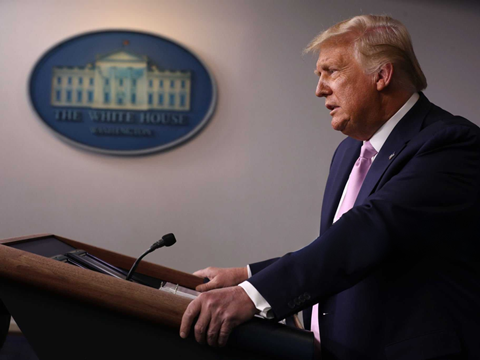
As President Trump’s tariffs crack down on imports, could local sourcing, reshoring production, and closed-loop recycling address the packaging industry’s concerns – and improve sustainable practice in one fell swoop? Charles Haverfield, CEO of US Packaging & Wrapping, makes the case.
A staggering 85 percent of executives are planning to change up their supply chains this year, with almost half of these citing Trump’s looming trade war as their biggest concern for 2025.
The packaging industry, in particular, is highly vulnerable to the potential impact of these tariffs, as many of its raw materials and components are sourced from overseas. And with so many sectors reliant on the packaging industry, such as e-commerce, retail and food manufacturers, the ramifications across the US economy could be far and wide.
However, a shift towards localized solutions, such as closed-loop recycling schemes, may offer a viable path forward…
What are the biggest supply chain vulnerabilities?
Experts are predicting that tariffs on imported materials will guarantee a rise in packaging expenses. For instance, Trump’s tariffs on Chinese goods, and China’s retaliatory new tariffs, are likely to significantly impact costs for US companies reliant on these imports.
Recent global events, such as the Russia-Ukraine war, have underscored the packaging industry’s vulnerability to raw material shortages by disrupting supply chains and driving up costs.
This issue is further exacerbated by the United States’ insufficient domestic supply of critical raw materials to meet packaging demands, with the Department of Homeland Security highlighting potential risks to the US economy as a result of limited access to critical raw materials. For the packaging industry, these materials are crucial to the product of plastic, metal and paper products.
How can companies circumvent this?
While completely avoiding higher costs may be unrealistic, companies can adopt several strategies to help mitigate these challenges, such as transitioning to sustainable packaging materials that don’t rely on imports.
At the same time, many businesses may need to reassess their supply chain strategies, such as reshoring to alternative local suppliers and investing in domestic production. Firms will need to carefully weigh up the cost of reshoring, like increased labor costs as well as a large up-front investment for businesses that don’t already have such a set-up.
However, once businesses invest in the infrastructure required to manufacture their own packaging without relying on new raw imports, they create the ideal foundation for implementing closed-loop recycling systems. These systems enable materials to be collected, processed and reused in production, fostering a circular economy that minimizes waste and reduces dependency on external supply chains. In theory, such an approach not only advances sustainability but also strengthens the resilience of US businesses against external pressures like tariffs.
Could we see an increase in consumer recycling schemes as a result?
As it currently stands, 95 percent of US plastic used in packaging is discarded after a single use. When looking at a more granular level at just plastics, less than 29 percent of PET bottles are collected in the US compared to more than 90 percent in several European countries. It’s clear there are glaring inefficiencies and systemic issues with the US’ recycling practices, which experts attribute to a combination of insufficient consumer education and inadequate local recycling infrastructure.
To dramatically change this would require a great deal of government investment, which is unlikely considering the administration’s attitudes to environmental regulations. For example, Trump’s plans to withdraw from the Paris Agreement may hinder broader global cooperation on carbon reduction.
Additionally, the financial pressures resulting from tariffs may strain resources, potentially hindering investments in sustainable practices like closed-loop recycling at a business level.
However, there is reason for optimism as leading industry players are beginning to take significant steps toward advancing closed-loop recycling initiatives. Coca-Cola, for example, announced it would be partnering with Circular Solutions Advisors (CSA) to develop closed-loop recycling systems at venues like stadiums and universities, ensuring beverage containers are collected and reprocessed into new food-grade packaging. The initiative has also proven successful, with Coca-Cola capturing over 60 million pounds of PET and aluminum bottles in 2023 alone.
The future of the packaging industry often depends on balancing practical needs with innovative solutions. While the looming tariffs undoubtedly present immediate challenges, time will tell whether they will also serve as a catalyst for transformative change for the industry.
If you liked this story, you might also enjoy:
Reuse vs. single use – which is better for the environment?
Sustainable Innovation Report 2025: Current trends and future priorities
What can the world learn from South Korea’s world-leading performance in plastics circularity?














No comments yet